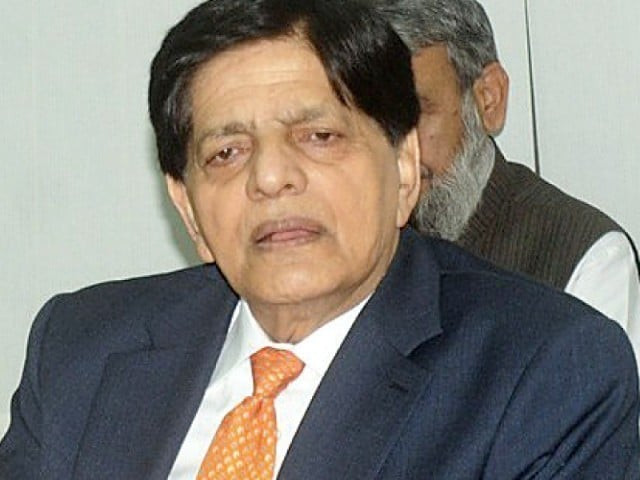Landmark feat: Federal ombudsman plans tehsil outreach
Salman Faruqui says his office had decided more than 227,000 cases since he took charge

Federal Ombudsman Salman Faruqui. PHOTO: FILE
Federal Ombudsman Salman Faruqui says he has written to the Council of Common Interests (CCI) to support his office in this task.
In an interview with The Express Tribune, Faruqui maintained that his office had decided more than 227,000 cases since he took charge, achieving an average of 70,000 cases a year.
Faruqui was sworn in as Wafaqi Mohtasib (Federal Ombudsman) in March 2013.
Terming the ratio of case clearance during his tenure unprecedented, he insists that the achievement was not only unparalleled in Pakistan but anywhere in the world.
“Internationally, Mohtabsibs take six months to decide a case and some cases even go up to two years,” he remarked.
Before he assumed office, its case clearance averaged between 16,000 and 18,000 cases annually, he added.
The institution of Federal Ombudsman was set up in 1983 to redress citizens’ complaints against maladministration on part of federal ministries and agencies.
Headquartered at Islamabad, it has nine regional offices in Karachi, Lahore, Peshawar, Quetta, Multan, Faisalabad, Sukkur, Hyderabad and Dera Ismail Khan.

It also appoints special grievance commissioners to address complaints pertaining to pensioners, children, overseas Pakistanis and civic agencies such as CDA.
Areas not under the federal ombudsman’s purview include matters that are sub-judice, relating to external affairs, defence, service matters and the Federal Public Service Commission (FPSC).
There are independent Mohtasibs (ombudsmen) for tax matters, insurance matters concerning private insurance companies, banking matters relating to private banks and harassment of women at workplace.
Any person aggrieved by an action of any functionary of any ministry, corporation or institution of the federal government can file a complaint.
According to Faruqui, there was a backlog of 75,000 cases when he assumed charge. “Some of them dated back 10 years.”
On March 12, 2013 the law was amended and now office of Ombudsman has to decide a case within 60 days of its filing and President has to decide a representation within 90 days. A serving or a retired judge of the Supreme Court assists the president in deciding such appeals.
“We have gone a step further, we have moved the government… to the Council of Common Interests that we should be now going to district and tehsil headquarters. Not only the ombudsman should go there, but provincial ombudsman and officials of the departments concerned against whom there are complaints, should be there under one roof,” he said.
Simple procedure:
According to Faruqui, filing a petition with the federal ombudsman is very simple. All a complainant needs is filing an application on a plain paper or giving a call at 1055. There is no need for a lawyer in this system. The complainant himself pleads his case.
“The chief justice was gracious enough to want to know how our institution decides a case within 60 days,” he said.
Implementation status:
To a question about the status of compliance of decisions taken by his office, he maintained that the implementation ratio was 93 percent.
“The remaining seven per cent cases linger for some valid reason,” he adds.
Of the 227,000 cases his office decided, only 7,000 people had filed an appeal against decisions, which comes to around 0.36 per cent.
“Appeals against decisions of sessions judges are as high as 37 per cent, appeals against high court decisions are 17 per cent, 27 percent in case of tax ombudsman’s decisions and 70 per cent against decisions of women ombudsman.”
Retired secretaries as advisers
Faruqui said before his joining the office, grade 18 and 19 officials used to work as advisors. “If a senior government officer appeared before him, the advisor was under pressure while giving a decision.”
He said that former federal secretaries or a former additional secretaries worked as advisors. An advisor, he said, who had already served in a department heard against that department. “Since the introduction of new system, between 80 and 85 percent cases are decided via mediation. Cases where neither side agreed amounted to between 14 and 15 per cent and we arbitrate,” he said.
These cases either go for a review or a representation is filed before the president and took longer to get implemented, he added.
Published in The Express Tribune, May 15th, 2016.



















COMMENTS
Comments are moderated and generally will be posted if they are on-topic and not abusive.
For more information, please see our Comments FAQ